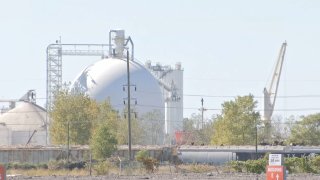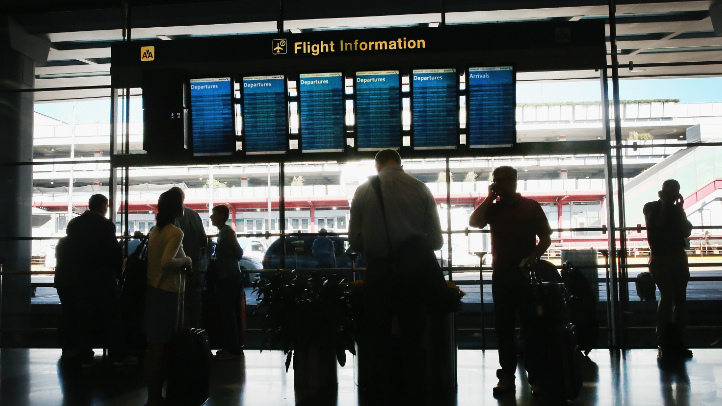
General Iron’s owner is proposing to return the junked-car and metal-shredding business to Lincoln Park where it operated for decades before shutting down at the end of 2020.
Last month, city officials formally rejected the plan — submitted through three permit applications in February. A company affiliated with the scrap-metal business’ owner Reserve Management Group recently appealed and is asking for a hearing with a city administrative judge who will review the city’s decision. No hearing date is set.
After RMG built a new shredding operation at East 116th Street along the Calumet River, Chicago Public Health Commissioner Dr. Allison Arwady denied Reserve Management an operating permit in February citing health and pollution concerns.
Reserve Management is also appealing that decision in hopes of reversing that decision and will face an administrative judge in a hearing on the matter April 21.
Feeling out of the loop? We'll catch you up on the Chicago news you need to know. Sign up for the weekly Chicago Catch-Up newsletter here.
Separately, Reserve Management proposed reinstating its permits for three parcels of land at and around 1909 N. Clifton Ave. Those permit applications were filed just days after Arwady, appointed by Mayor Lori Lightfoot, rejected the plan for the Southeast Side operation.
The city said in a reply to the company that its previous permit to operate on the North Side lapsed, the company lacks zoning approval and also said Reserve Management didn’t correctly apply for a permit for big metal-shredding operations under rules that went into effect almost two years ago.
Asked about the possibility of a return to Lincoln Park, Lightfoot noted the many nuisance complaints neighbors had about the facility, adding “I don’t see that as a possibility.”
Local
“General Iron has a long, checkered history in Lincoln Park. The people in that neighborhood have expressed themselves quite clearly. So, I don’t see that as a real viable option,” Lightfoot said at an unrelated news conference Monday.
General Iron stopped operating in Lincoln Park at the end of 2020 under an agreement with the city. Developers and city officials wanted its longtime owner, the Labkon family, to sell its 20 acres along the Chicago River to make way for a proposed multi-billion-dollar real estate development called Lincoln Yards.
When Reserve Management acquired General Iron in 2019, the Lincoln Park land was not part of the sale. Instead, the Labkon family held on to it. A listing with real estate brokerage Colliers International shows the land for sale and says it can be split into three parcels or purchased as one.
The listing touts “direct access to higher end residential, retail and entertainment opportunities,” also noting the land is zoned for heavy industrial use.
Ald. Brian Hopkins (2nd), who represents the area, said in an interview that residents who often complained about pollution and odors from the largely open-air operation would not support its return and added “it’s time to talk about the future of that site and not its industrial past.”
Hopkins said the city was right to reject Reserve Management’s application.
“It seems the justification for the denial is both obvious and self-evident. I’m not sure why they would waste their time with a hearing,” Hopkins said. “Under no circumstances would the community welcome a return to the toxic polluting history of their recent past.”
Through a spokesman, Reserve Management executives declined to comment. A spokesman for Arwady and the health department also declined to comment.
General Iron was the last major piece of an industrial corridor that once thrived on the North Branch of the Chicago River. Over the years, other companies, including Finkl Steel, relocated.
The proposed move by General Iron from Lincoln Park, an affluent and mostly white community, to a Latino-majority neighborhood on the Southeast Side drew protests and a formal civil rights complaint with federal housing officials. Community organizers asked the Department of Housing and Urban Development to determine whether their rights were violated as defined by the Fair Housing Act. That investigation into the city continues.



